It seems as if we are constantly searching for ways to better our lives and our homes and create spaces that are enjoyable to be in, and quite frankly, safer for our families to live in. Popular products in wellness and aromatherapy that we tend to see every which way we look nowadays are essential oils. We see them listed in our favorite creams, serums and hair care products. We see their names labeled on candles, household cleaners and odor neutralizers. And now, consumers are starting to notice them in laundry detergents or perhaps, taking fresh smelling laundry (without sacrifices) into their own hands by adding their favorite essential oils themselves. Homemade laundry detergent isn’t uncommon at all. Who doesn’t want their laundry to smell oh-so-pleasant and know that it isn’t due to a cocktail of chemical-filled fragrance? Yes, please.
What are essential oils?
Essential oils are extracted from plants — all kinds of different plants — through distillation or cold pressing, leaving an end result of super concentrated pure oils. The extracts bring along the scent, or essence, of the plant, which is ultimately what makes them so popular among consumers. Of course, many offer attractive supplemental benefits, too.

The dangers of fragrance in laundry detergent
Fragrance in laundry detergents can be dangerous. The term “fragrance” is frowned upon because that one single word can represent hundreds of chemicals that companies don’t actually have to disclose. “Unscented” chemical laundry detergents can also be dangerous, as even more chemicals can be used to mask any and all fragrance.
So naturally, consumers often decide to switch to all-natural detergents, and are typically met with only unscented options — actual unscented options. Some people prefer unscented products, but some miss the small joy that comes from nice scents on laundry day. Smell is one of our strongest senses, after all! But guess what? Those consumers haven’t necessarily run out of options. One might consider adding essential oils to laundry detergent, particularly if it’s unscented. You could even try products that provide you with essential oil-laundry detergent combinations — one of which is Rockin’ Green Platinum Series detergents — Active Wear and Dirty Diaper.
Unless a laundry detergent includes an essential oil for fragrance, like Rockin’ Green does, it’s likely the fragrance it includes is artificial and could irritate skin. The chemicals that hide behind “fragrance” can cause and irritate skin conditions in babies and those with particularly sensitive skin. A study even suggested that scented laundry detergents contain carcinogens that can be emitted through dryer vents into homes. The study showed that chemical, fragranced laundry detergent emitted 25 air pollutants including some listed as known carcinogens.
How to add your own essential oils to laundry
So you want fresh smelling laundry, no harmful chemicals or added carcinogens? Well, meet option number one: adding your own essential oils to your laundry to make them smell subtly pleasant and oh-so-fresh.
Add a few drops of your favorite essential oil to the washer or combine with your unscented laundry detergent for added natural scent. Some popular essential oils used for laundry? Try lemon, peppermint, eucalyptus, lemongrass, tea tree oil or lavender essential oil.
Alternatively, you can also add a few drops of an essential oil to a damp washcloth or dryer ball and toss it in the dryer with your laundry. For the most part, this DIY method is safe and chemical free, but it is important to be cautious when dealing with essential oils on your own. They are highly concentrated, potent formulas. Too much of one pure essential oil could potentially cause irritation when it comes in contact with skin.
As a best practice, add 20-30 drops of the essential oil of your choice to your unscented detergent or washing machine. You can always adjust the amounts if the scent is too strong or not as noticeable as you's prefer.
When used in cleaning products like laundry detergent, essential oils offer several benefits. They can help kill bacteria and fight viruses, some can help in cutting through grease and they all offer an aromatic punch that makes laundry less of a chore.
Here’s a list of popular essential oils that not only smell great, but have additional benefits that help keep your home and laundry safe and clean.

Why do we use tea tree oil in our Platinum Series Laundry Detergent?
If DIY and dangerous chemical household products aren’t exactly for you — great news! You have options, too. Again, Rockin’ Green Platinum Series Active Wear Detergent as well as our Platinum Series Dirty Diaper Detergent, contain tea tree oil. We’ve done all the leg work for you and included a popular, pleasantly smelling essential oil with antibacterial, anti-fungal and virus-fighting properties in our formula.
Although adding essential oils to washers full of laundry is common, tea tree oil is an essential oil in particular that people reach for when they have especially funky odors in their laundry. Think: soiled towels, sweaty activewear and rags you might use to clean your countertops.
The natural, plant-based enzyme blend in our Platinum Series detergent plus the added tea tree oil really provides a double whammy kind of clean. It effectively removes “set-in” odors in activewear, funky towels, cloth diapers (yuck!) and other types of laundry, all while using natural tea tree essential oil with anti-bacterial and anti-fungal properties.
Having clean laundry and using safe products in your home is important. That should be a no-brainer, right? But using essential oils is also an environmentally friendly way to add lovely scents to your laundry. Every small choice to live more sustainably is a step in the right direction for our planet. We respect that, and when you choose Rockin’ Green laundry detergents, you can be confident you’re using eco-friendly, plant-based and biodegradable products that have your (and the planet’s) best interests at heart.
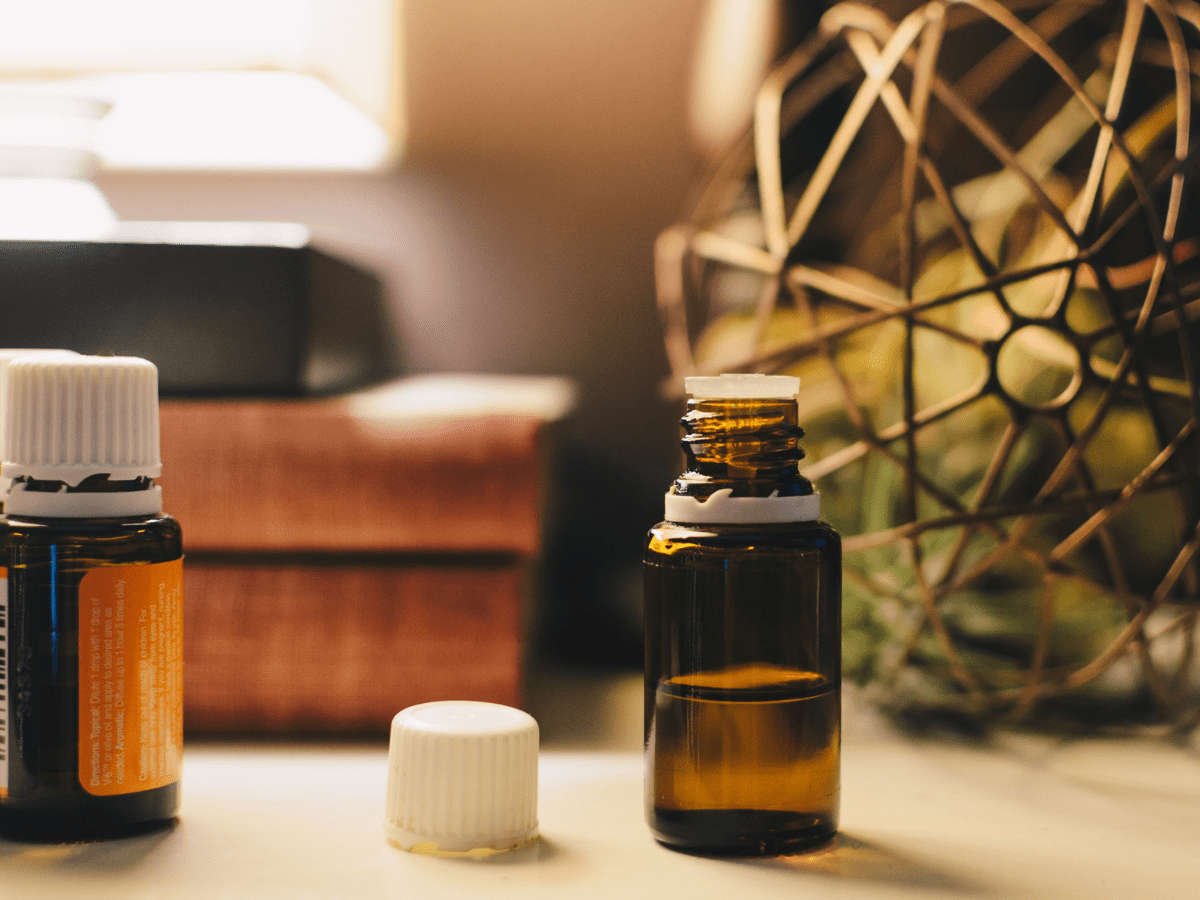



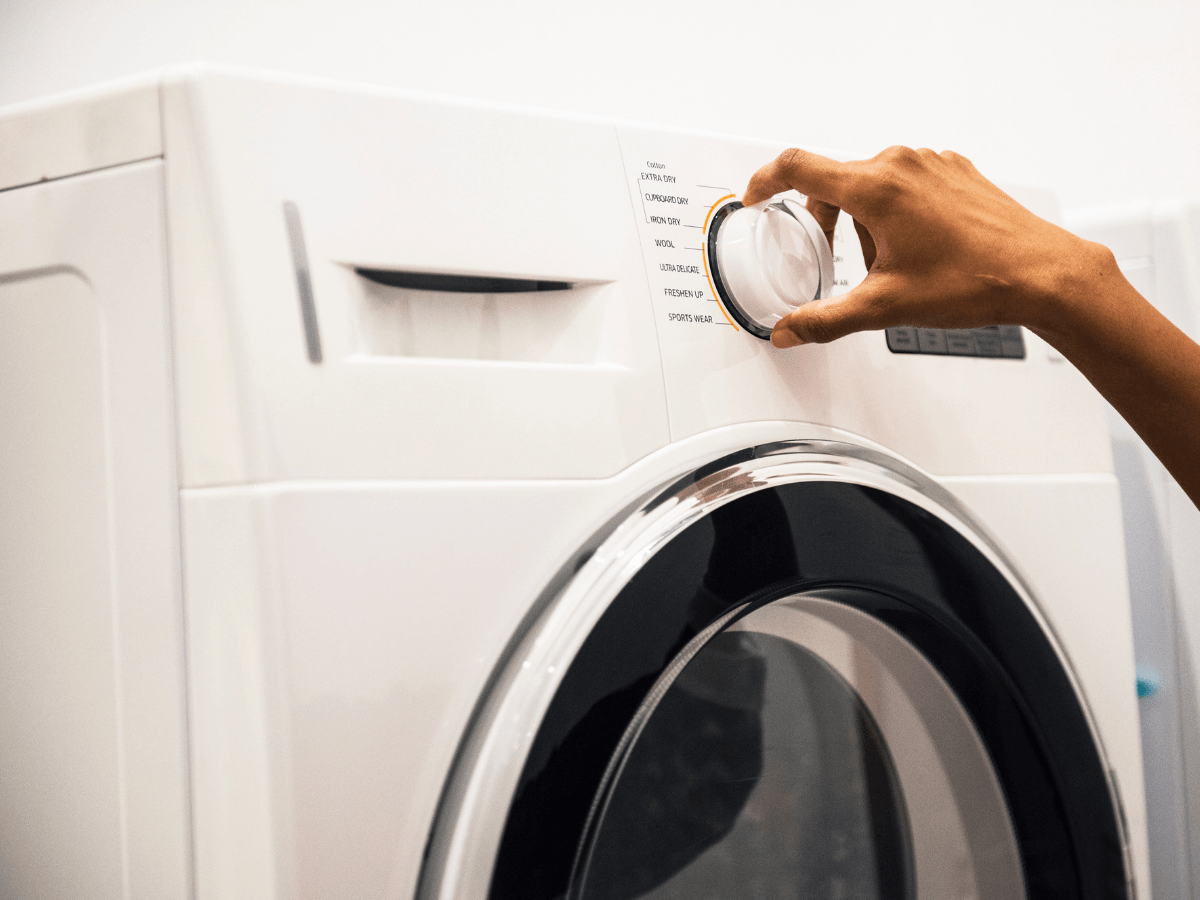
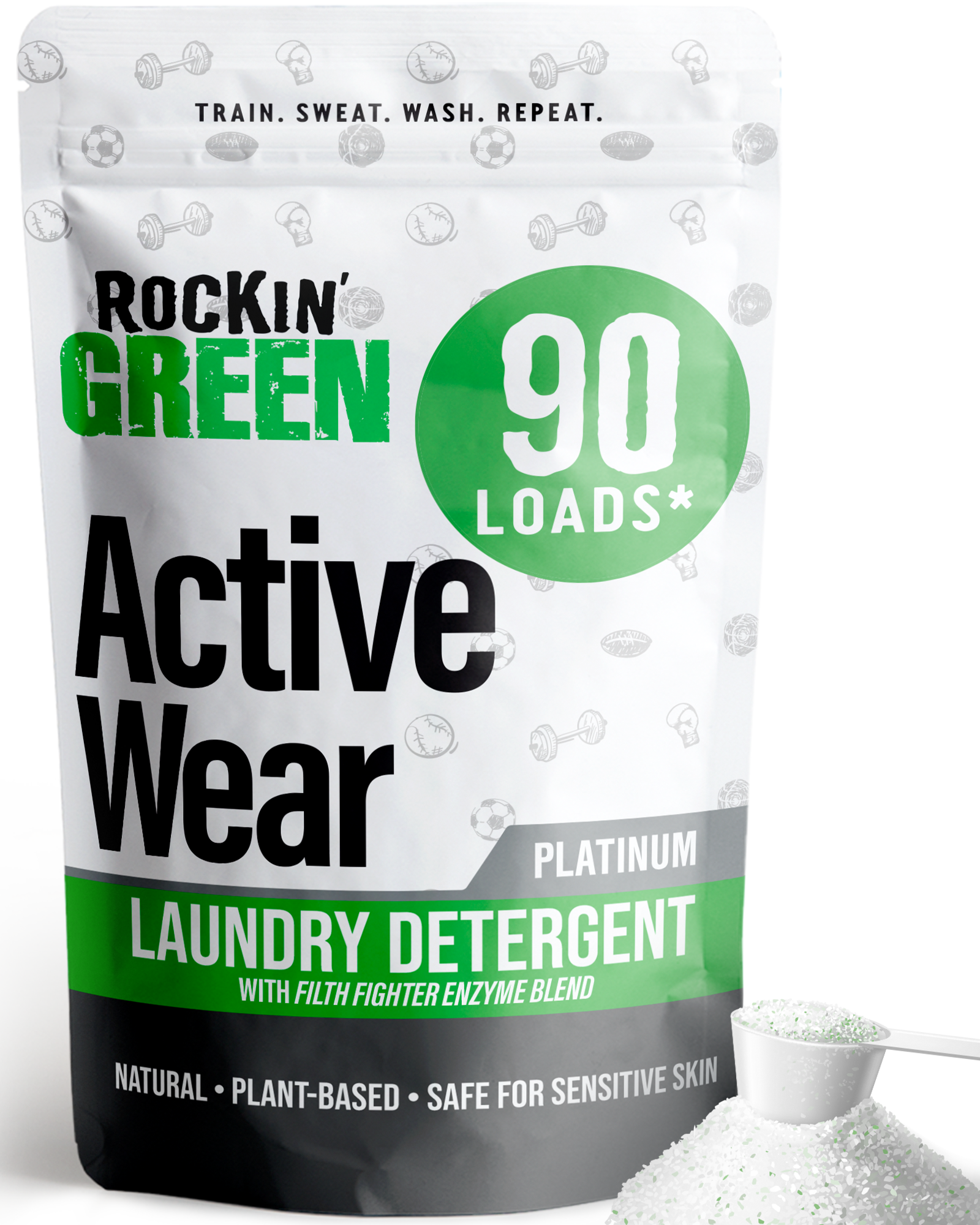
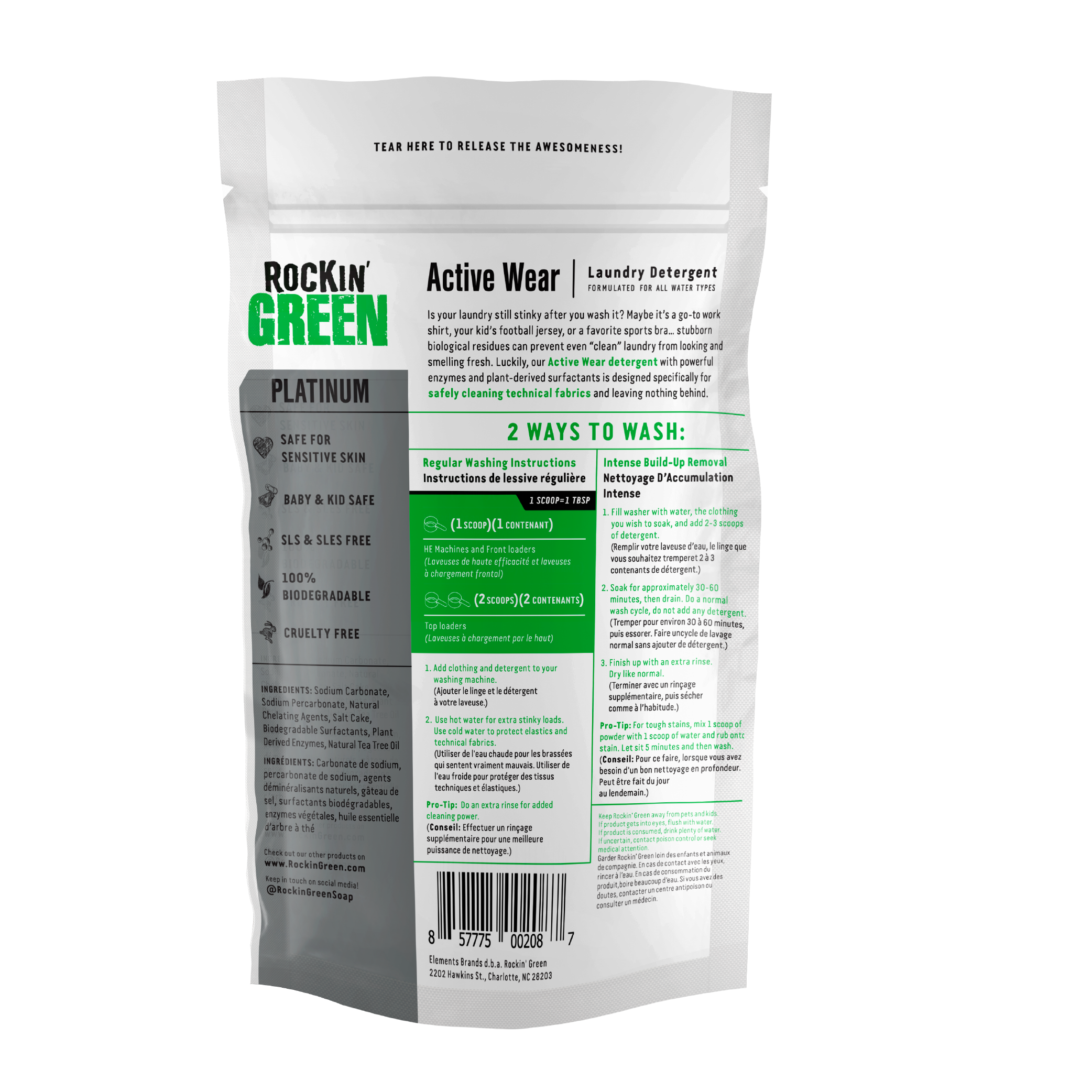
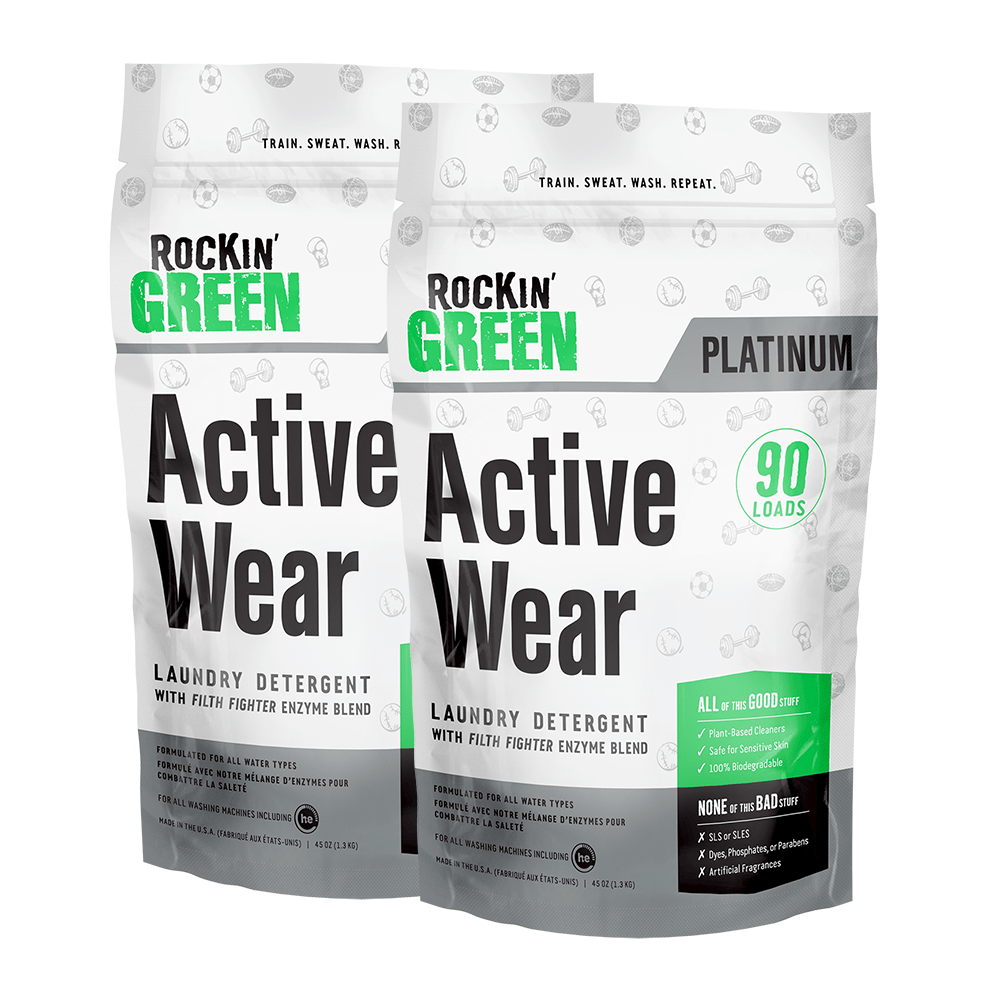
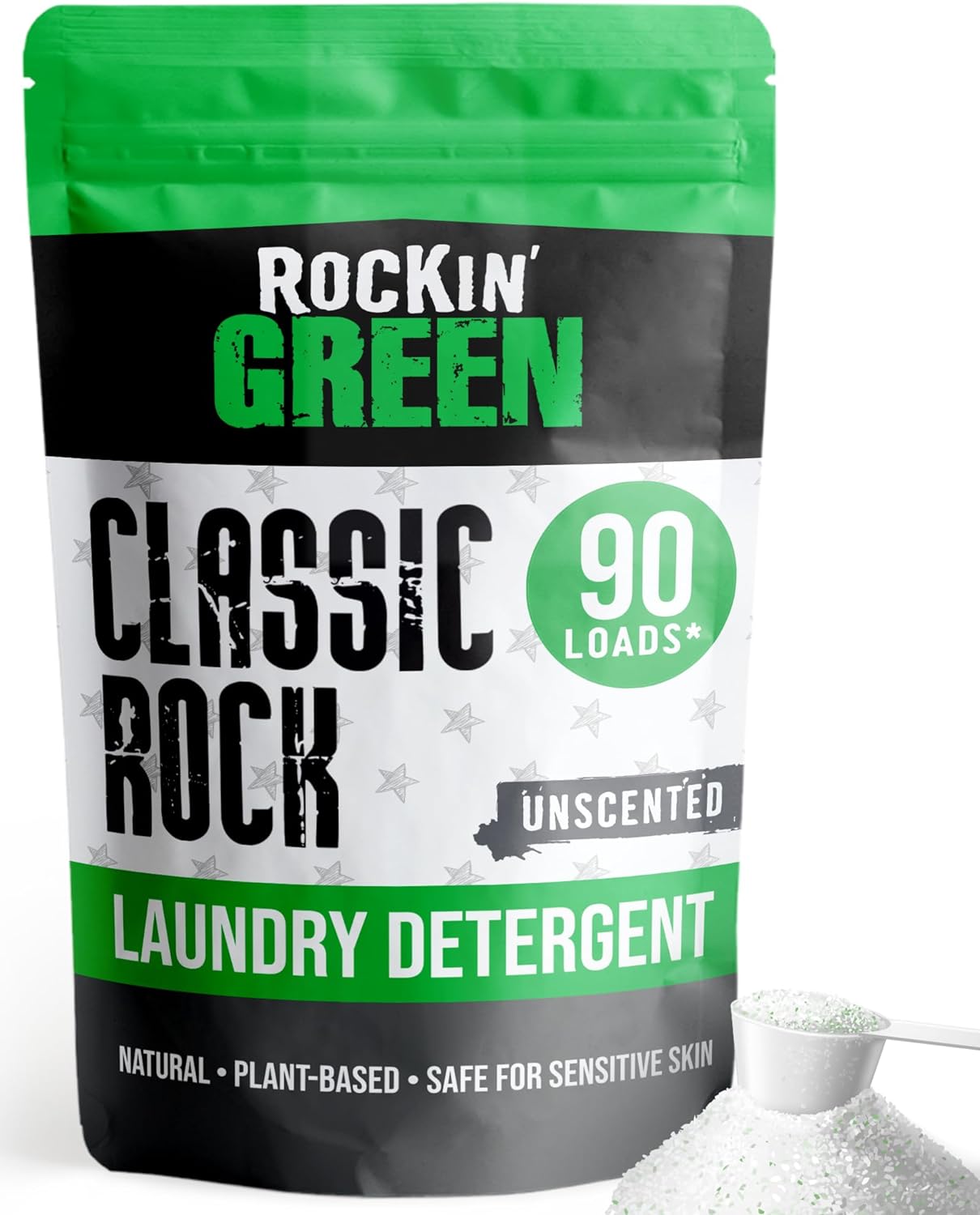
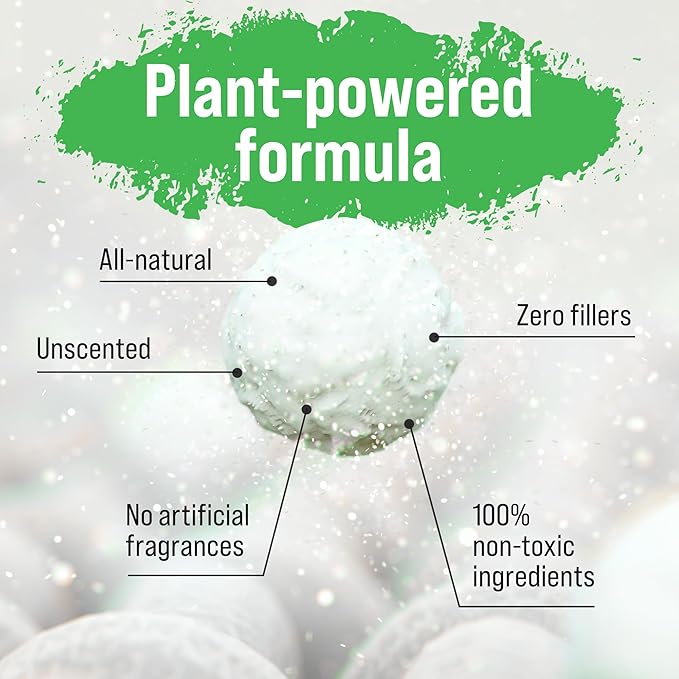
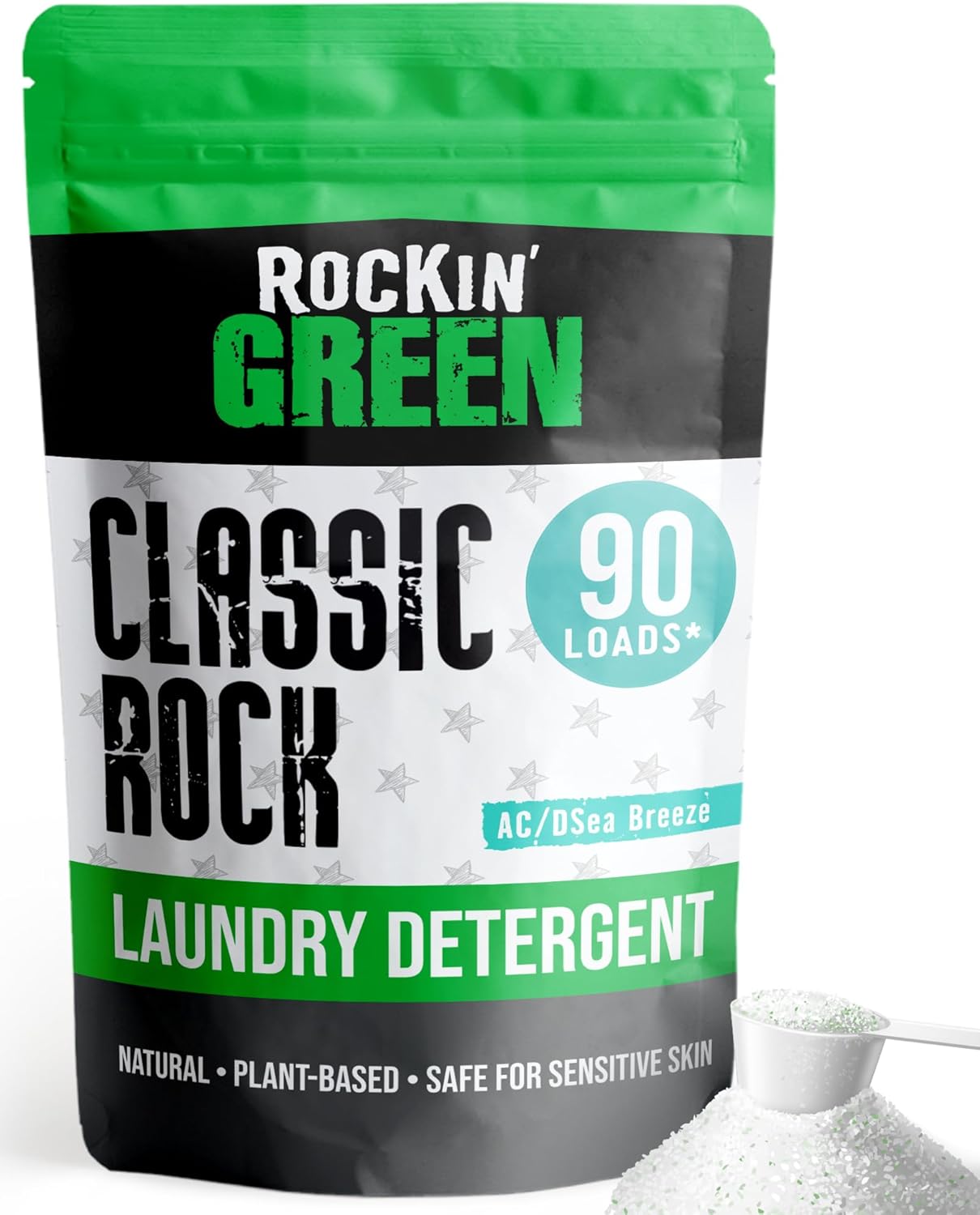
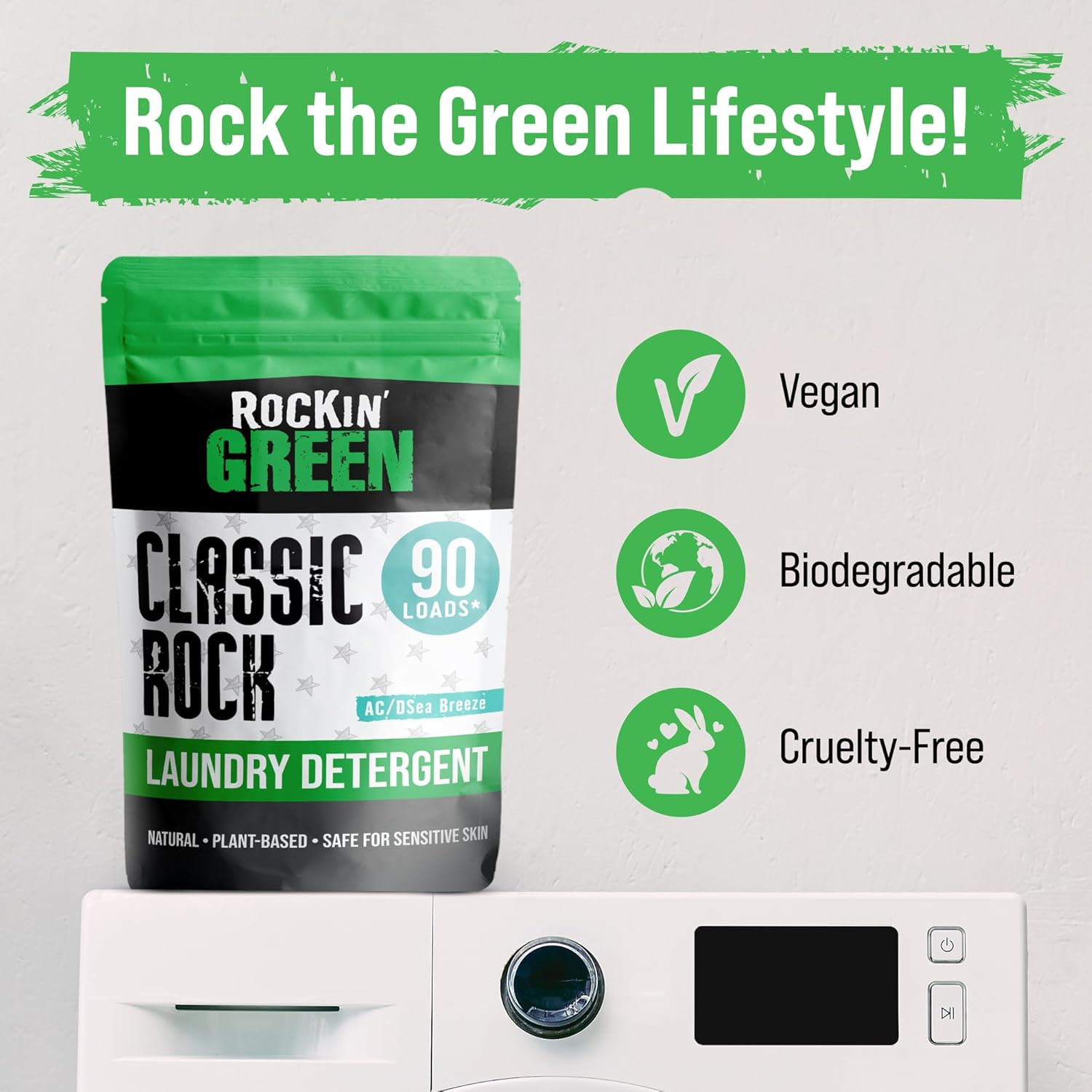
Leave a comment
This site is protected by hCaptcha and the hCaptcha Privacy Policy and Terms of Service apply.